Banning books: is it actually benefiting students?
School districts state-wide received a list of approximately 850 books State Rep. Matt Krause deemed unfit for students to read on Oct. 25, 2021. Among this list are National Book Award Winner Between the World and Me by Brie Spangler, All American Boys by Jason Reynolds, Roe v. Wade: the abortion question by D.J. Herda and Teens & Sex by Myra H. Immell. Associate Editor Laura Gill comments on Krause’s proposal and why it is important to understand the decision that falls in parents’ laps.
On Oct. 25, 2021, State Rep. Matt Krause sent a letter to school districts across the state providing a 16-page list of approximately 850 book titles. In the letter Krause asked school districts to report how many copies of each book they had, how much money they spent on the books and where on campus the books are located. Krause is looking to remove books with topics of race, teen pregnancy, abortion and homosexuality from school campuses.
Conversations on banning books are not new. It seems every year a new list is sent out including books they believe are not fit for students to read. Schools receive the lists and books disappear from campuses across the state. This is gravely unfair for students. Every student should have access to a wide variety of books at any time.
As books get banned from schools the limitation of students’ equitable access to resources expands. Many students in high school do not own a library card for their local area library. On campus libraries provide students with access to information without having to make a trip to their area library. Often it is difficult to get to a public library or make time in your day to go. This leaves students without information for possible research assignments, personal inquiries and overall enjoyment of reading. Students should be able to read what they like without that freedom taken away from them.
Through taking books out of campus libraries’, the school district has the power to determine what is fit for a student to read and what is not. Censoring what information students have access to directly violates the first amendment. Krauss said he specifically chose these 850 books because they could make students feel uneasy. However, these topics are current and previous issues in the United States including race, abortion, LGBTQ+ topics and more. Every student deserves the right to learn from these resources if they so desire.
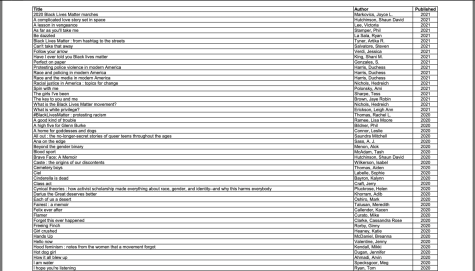
It is not the state’s responsibility to decipher who is fit to read what book. Each individual student is just that, an individual. They are each on their own journey with their own experiences and knowledge. It is the parents’ responsibility to have a family conversation deciding what books their students should or should not be reading. Therefore, banning books because of the topic leaves the nation, state, school district or teacher to decide what every student has the right to learn about, which in turn takes the decision out of the hands of the parents.
Krauss initiated his list of books in response to the passing of House Bill 3979 which overviews the illegality of schools requiring students to learn about anything dealing with racism or sexism. Krauss wants the on campus libraries to ban these books because they violate HB3979. However, the bill does not say anything about allowing students to read and learn about said topics, it states that school systems cannot require a student to learn about it. Having books about race, sexism, LGBTQ+ and topics like it in a school library, available for students, is not against the law.
Overall, it is up to parents about what their students are learning, and HB3979 secures that right by restricting what is taught in the classroom. However, a student’s resources should not be censored or taken away by the state; only a parent should be able to make that decision.

Oh, hey there! My name is Laura Gill, and I am a senior. I look forward to being Associate Editor of The Eagle's Tale this year. I am on the leadership team for the Soaring Pride Band, and I am in the Canyon ISD PRO Program. I am also involved in the...

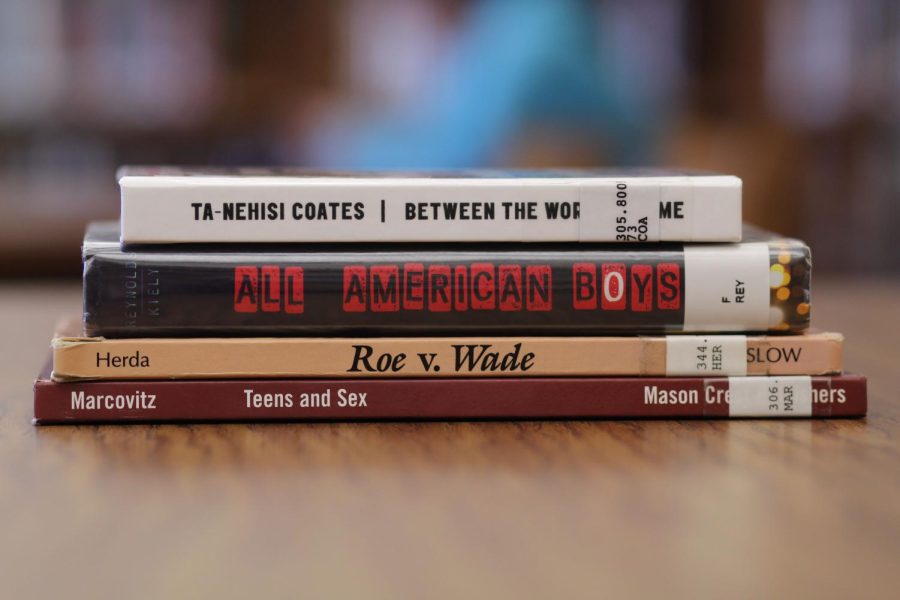

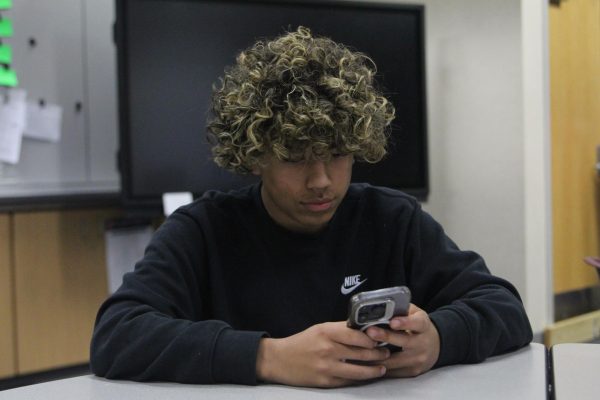

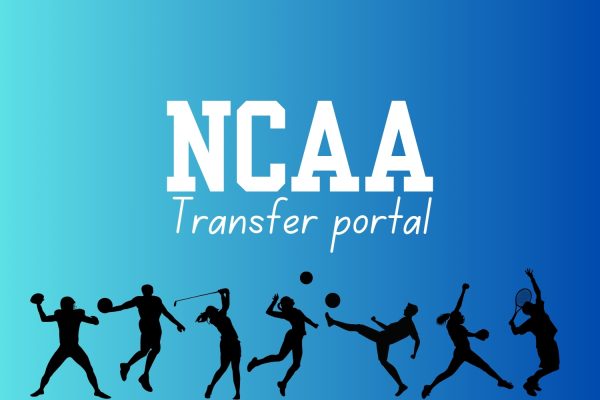



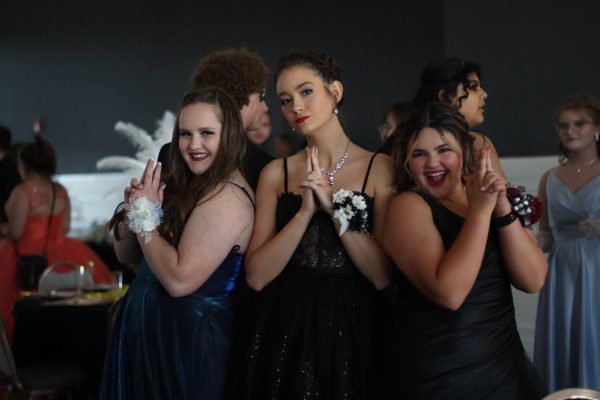
Jeff Stocker • Jul 24, 2022 at 4:30 pm
Who do you think is paying for the books in the library? Do you want “taxation without representation”. I have heard from multiple parents that they do not want these books banned, but that they do not want their, “The Taxpayer Dollars” spent on them. If you or your parents want books that are deemed offensive by the voters and Taxpayers of CISD, we have no problem with you purchasing and reading them. See, no banned books. Another issue is age appropriateness. Many of the books which are on this list, if made into a movie with exact same language and topics would be R or X rated at a movie theater. Do you think that deep emotional, violent, and explicitly sexual content is appropriate for all age groups? Obviously our society does not. Why should books be treated differently than movies, video games, and music albums?
Alexis Martinez • Jan 10, 2022 at 3:47 pm
I believe banning books isn’t benefitting anybody, they keep saying they want us to act like adults, and yet we can’t get ahold of books that are more mature level. They act as if people don’t already have their opinions on things, and they can’t treat us like children. If they ban books it would be rather boring, all the best books would be gone and people would no longer be challenged into reading. Considering the facts people have the right to do what they want with rules in place, removing some of the best books such as Twilight (I believe it would be taken out because of the ‘visual’ features, but in reality, it is just good writing) On top of all that people would just end up using the internet for things. If parents don’t want their child reading about sex, racism, sexism, etc. then that child should know, and they are accountable for their actions.
-Why ban books on stuff that is going on in our everyday life?
Jeff Stocker • Jul 24, 2022 at 4:34 pm
There is nobody asking for books to be banned. If you or your parents want you to read this material, simply go buy the book. Why should myself or other taxpayers be required to purchase materials that we find offensive? If you want them, spend your own money on them.
Cash Wallace • Apr 13, 2023 at 3:32 pm
Simply untrue, plenty of people are not only asking but demanding books be banned, if nobody asked, then books wouldn’t be banned. and if taxpayer’s dollars are the issue then you are wasting taxpayer’s dollars throwing away books that are already in the library. These “offensive books” are likely in the Canyon library, and your taxpayers dollars go there as well. My opinion is you shouldn’t check out a book you don’t think is appropriate. Nobody is forcing anyone to check out an offensive book, just like nobody is making anyone buy an offensive book.
Leah Swires • Jan 10, 2022 at 10:43 am
I don’t understand how banning books about topics discussed in the real world is necessary? Why ban books on race and homosexuality when its literally a topic we are faced with in school everyday. Schools banning books retaining to my lifestyle makes me feel- pretty horrible to say the least, almost like I should be banned just like those books. If they think the books should be banned because kids are going to follow up on the topics in the books WHY haven’t we banned 13 reasons why? Us UIL kids need books with these topics for our more political events we shouldn’t not have access to them because they’re “too real”.
Jeff Stocker • Jul 24, 2022 at 4:35 pm
There is nobody asking for books to be banned. If you or your parents want you to read this material, simply go buy the book. Why should myself or other taxpayers be required to purchase materials that we find offensive? If you want them, spend your own money on them.